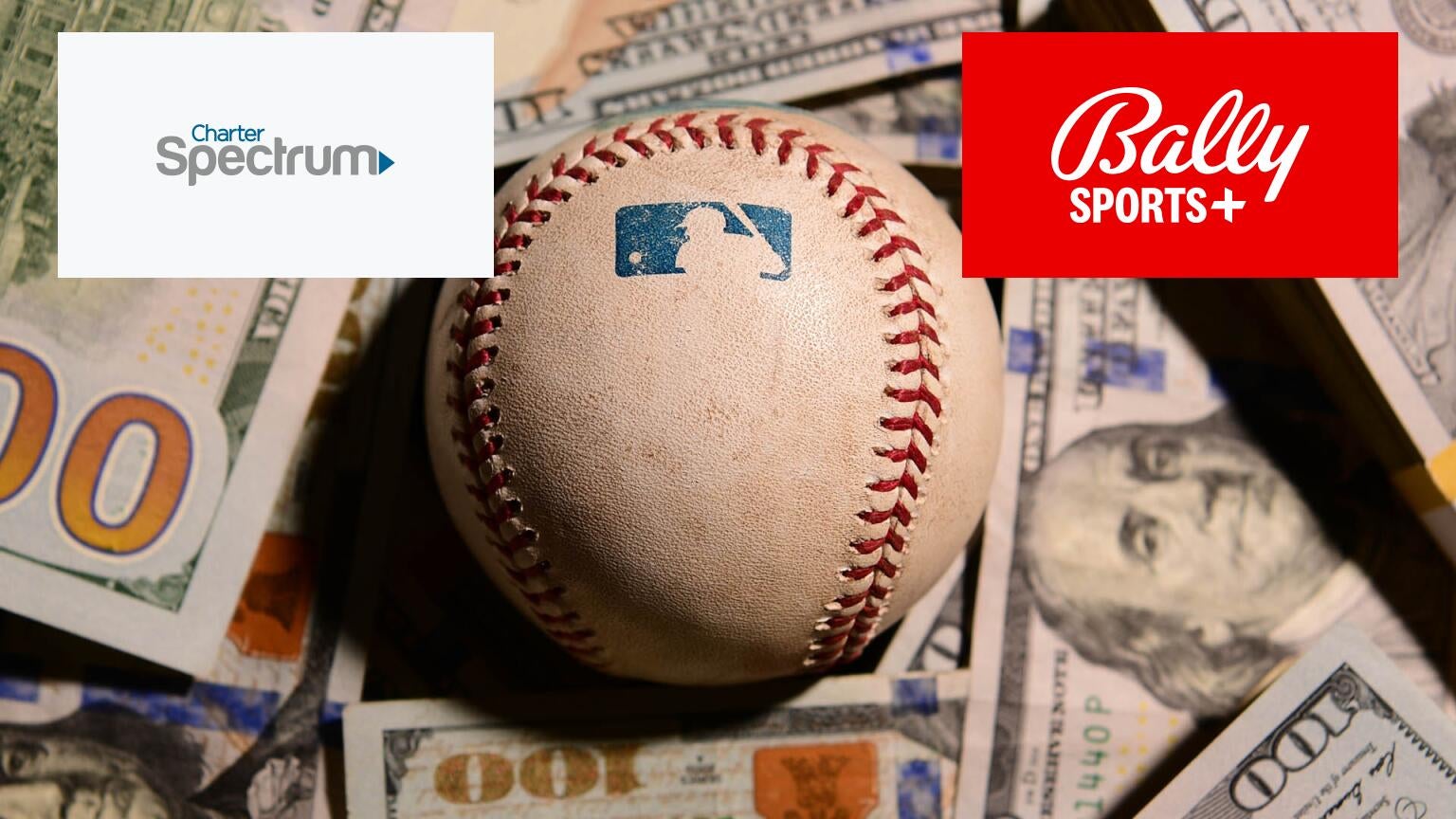Breaking: Spectrum to Launch Cheaper Cable Package Without Regional Sports Network; Major Blow to Bally Sports

Despite the fact that Diamond Sports Group (DSG) has surprisingly been able to hang onto the broadcast rights for all but one of the Major League Baseball teams that it entered bankruptcy proceedings with, things have taken a turn against the beleaguered company as Spectrum is planning to introduce a new subscription plan that will not include regional sports networks (RSNs).
Spectrum — which is owned by Charter — is the second-largest cable company in the United States and the Sports Business Journal's John Ourand is reporting that the provider will launch a lower-cost subscription package that doesn’t feature RSNs sometime this quarter. Not only could this dramatically limit the reach of the Bally Sports channels owned by DSG, but in turn, it could lead to a significant reduction in carriage fees owed to the company. Channel owners receive a contractually specified amount of money for every cable customer who has access to their channels, whether those viewers watch them or not.
So, if Spectrum makes it easy for non-sports fan subscribers to opt out of receiving RSNs, that could mean that the amount of money coming to DSG and other sports channel owners could see a sharp decline. As cable companies continue to see their subscriber totals drop, cost is often the biggest reason cited by consumers cutting the cord; so if cable companies are able to find creative ways to keep customers connected to the services, chances are they will do it, even if it spells trouble for the channel owners.
According to SBJ, the cheaper plans will likely save customers $10 per month. For the majority of the existence of RSNs, their carriage agreements with cable and satellite providers required that the channels be included on the most popular, base subscription levels in order to boost the fees that they would receive. However, through multiple negotiations over the years, Charter was able to change those restrictions leading to a situation in which it can now put the regional sports networks on a more expensive sports-specific tier.
“As little as a decade ago, RSN contracts required that they reach 85%-90% of a distributor’s customer base,” Ourand said. “As Charter has renewed its RSN deals, it began lowering those guarantees, which has given Charter the flexibility to create a lower-cost tier without them.”
For RSNs that do not agree to the company’s new terms, they will likely be dropped. Ahead of the baseball season this spring, Spectrum dropped MASN, the channel that carries Baltimore Orioles and Washington Nationals’ games, because it refused to agree to the lower availability levels.
To make the move more palatable for RSNs, Charter has promised that it will only promote the cheaper packages to new customers or those who are actively looking to change their plans, meaning that the company won’t push the lower-priced plans to its entire subscriber base. Also, Charter has said that it will not launch the new packages unless every RSN in the given market has agreed to the new contract.
Any customer who does sign up for RSN-plan will also receive access to the corresponding direct-to-consumer streaming services like Bally Sports+, MSG+, or the YES App. The company will also offer subscriptions to the streaming versions of these channels to its internet-only customers as well.
If this is successful for Spectrum, the company’s competitors will almost certainly have to follow suit in order to not lose sports-agnostic customers. Therefore, a move like this could start a domino effect across the industry. If Comcast and Cox — and even satellite providers like DIRECTV and DISH — offer similar plans, the entire RSN ecosystem could come crumbling down. RSN owners have been preparing for the demise of the cable bundle in recent years by attempting to pivot to a strategy that includes both traditional TV and streaming revenue.
Late last month, MSG launched its long-awaited streaming service more than a year after Bally Sports+ opened its soft launch.
Bally Sports’ parent company Diamond Sports is continuing to make its contractual payments to MLB teams despite being deep into bankruptcy proceedings, but it has another important test coming soon. DSG will have to come to terms with Comcast and DIRECTV this fall as its current deals with those providers are set to expire. Failure to arrive at new carriage agreements with the providers would almost certainly spell the end for the company, but if both push for agreements similar to what Charter has been able to put in place, the entire landscape of regional sports networks could be dramatically different in 2024.
